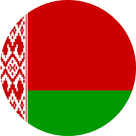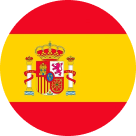Languages of the world - the youngest languages
There are a huge number of languages in the world today. According to some estimates, there are as many as 6 thousand languages (2.7 thousand languages plus dialects). Language is an integral part of a nation’s culture and identity. It emerges, develops and disappears together with its speakers. It is an expression of a nation’s mentality and other characteristics, but it is also a powerful unifying force, fulfilling a social function.
If you have any questions, you can consult us by phone:
+375 44 768-02-88
+375 29 257-14-58
To find out the cost of services, please see the Prices section.
Most modern languages originated a long time ago. Although we do not know what accent was used by Adam and Eve, the first known written reference to the culture of speech is related to the Bible story about the construction of the Tower of Babel. According to tradition, God divided the Babylonian language for ease of communication. The first surviving scripts date back to the Sumerian-Babylonian civilisation. Although some ancient languages have not yet been deciphered.
Among the youngest known languages is Afrikaans. It is spoken in South Africa and Namibia, mostly by white people and by a small proportion of local inhabitants. The language belongs to the Germanic group of languages, and until the beginning of the last century it was considered a type of Dutch. In general, the people of Africa speak more than a thousand different languages.
English is considered a language of international communication. Although it is not very old compared to the others, and has undergone many changes since the fifth century A.D. For example, today London is home to a huge number of different immigrants who speak more than 700 different languages. In some areas of the British capital English is no longer the main language. Similar processes have taken place in other Western European megacities and in the USA. At the same time all Somalis speak the same state language.
The Slavs, eastern, western and southern, were the last to form their own language in Macedonia. Today, in the age of global political, economic and cultural processes it is very difficult for languages of small states, let alone dialects, to survive.
Scholars have at various times even put forward the idea of creating a unified language for international communication. There were attempts to create such languages in the nineteenth and twentieth centuries in Prussia and the Netherlands. However, the artificially created languages did not take root among the population of Europe. The most famous among them is Esperanto. In the first half of the last century, even an educational institution was opened where it was taught, textbooks and manuals were developed and published.
For space enthusiasts, it may not be a bad idea to master the Lincos language. It was created by the famous German mathematician Freudenthal. One of the oldest languages is Latin. Although it is considered dead, Latin is the official language of the Vatican. The most difficult language to learn is Basque. It is spoken in a small area in northwestern Spain and southern France.
Modern languages are evolving under the influence of the Internet and other technologies. Even English has undergone a lot of changes in the past few decades.
Our translation services.







